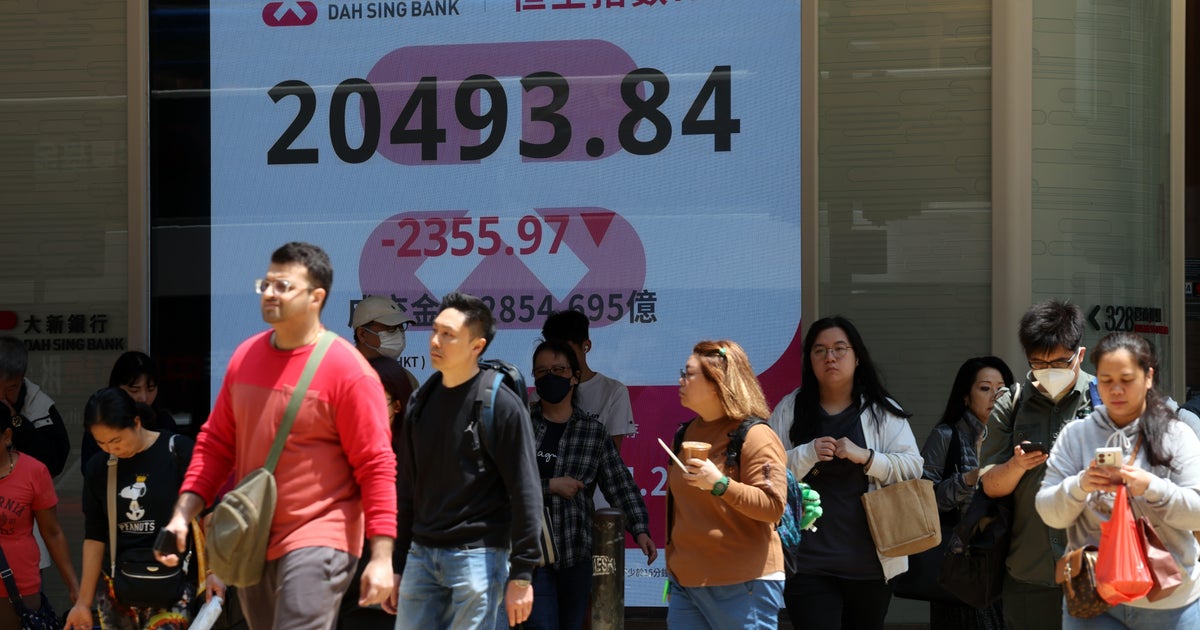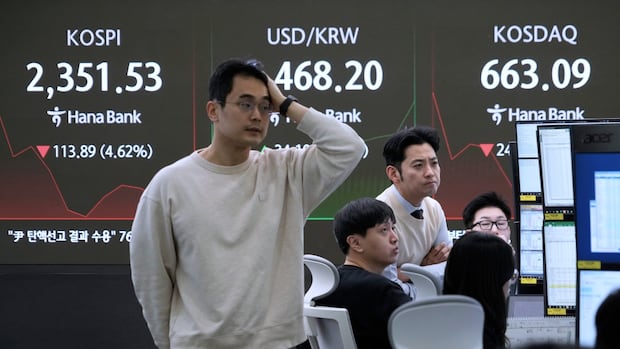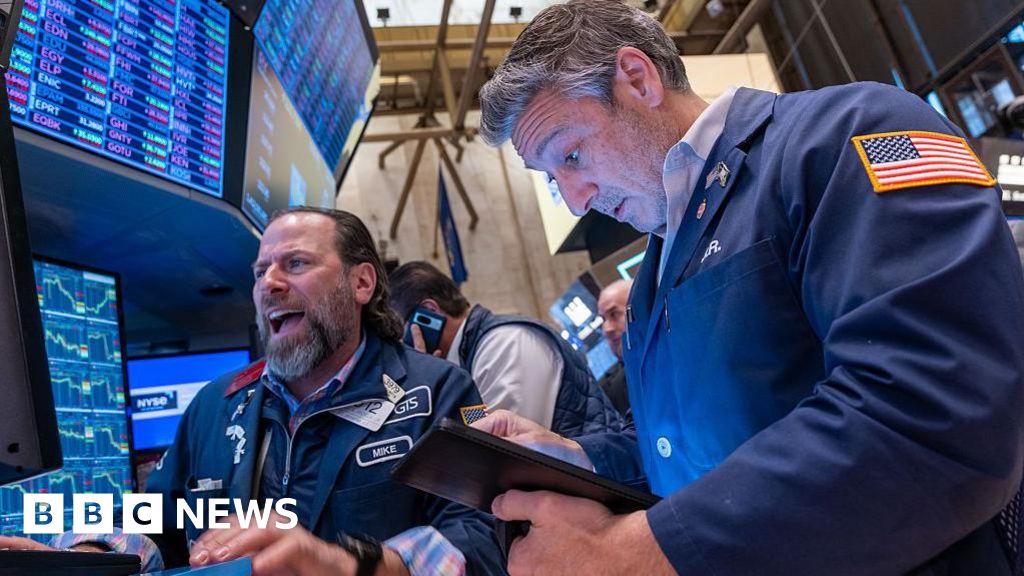Financial markets abroad fell on Monday and future US stock exchanges were a renewed sale pressure after Leading indices collapsed Last week, in the midst of investors’ fears by the economic fall of the Trump’s last tariff rate I save.
The Nikkei 225 Index of Tokyo decreased by 7.8%. Actions in Hong Kong fell more than 12%, their worst day in more than 16 years, while in mainland China, the Shanghai composite index exceeded 8.4 percent. In Taiwan, Taix fell by 9.7%. Korea of South Korea lost 5.6%.
Australian reference shares rate closed 4.2% lower after recovering slightly from a loss greater than 6%.
European shares followed the markets of Asia lowering, as the Dax of Germany fell by 6.5%, the CAC 40 in Paris lost 5.7%and the FTSE 100 in Britain lost 4.5%.
Future of Stock
Future Industrial Means of Dow Jones had fallen 1,242 points from 4:08 am Edt, according to Bloomberg, while Nasdaq future were out of 685.25 points and future S&P 500 had lost 181.25.
Stock market markets sold last week after President Trump on April 2 announced a minimum 10% rate to all imports in the United States and ‘Reciprocal’ Covered in almost 90 countries. The global rate came into force on Saturday, while the coincident rates will take place on April 9.
The rate scale surprised investors, sending U.S. actions to their most clear decrease in five years and erasing trillions of investors’ wealth. Many economists warn that the imposition of wide rates on goods sent to the United States could increase inflationTo refresh consumer spending and harm economic growth.
Retroducing -s against the United States, China said on Friday it will be put on a 34% fee to imports Of all the north -American products from April 10. Beijing in March also began to collect 15% of North -American agricultural products, such as chicken, pork and soy.
« China and the United States are now blocked in a chicken game, with the risk of a global trade war on financial markets, » said Pantheon Macroeconomics analysts to the investors of a note.
The S&P 500 has decreased almost 14%, as Mr. Trump unveiled the last rates last week, while the blue chip dropped by 12%. Nasdaq has decreased almost 16% in this period, putting the technological heavy index in a bear market, when the shares fall at least 20% compared to the most recent maximum.
Higher rates since 1909
Since entering the White House in January, Mr. Trump has also given 25% rates to imports from Canada and Mexico, has sharply increased import rights over Chinese goods and put 25% taxes in foreign carsAmong other measures aimed at United States commercial partners.
The United States average rate of imported goods is now at its highest level since 1909, according to the Yale’s budget laboratory.
Trump said on Sunday he will not retire from his rates unless other nations even leaving his trade with the United States
Talking to journalists aboard the Air Force One Sunday, the President said he did not want to fall world markets, but « sometimes you have to take medicines to fix something. »
High officials of the Trump Administration have carefully defended their commercial policies, saying Sunday that more than 50 countries subject to the last round of rates have requested conversations.
Speaker « Faces the Nation » On Sunday, the Secretary of Commerce, Howard Lutnick, said that the rates « will definitely remain in place for days and weeks. The President must restore world trade. »
Despite last week’s market route, some Wall Street economists are waiting for the Trump administration to facilitate rates in certain countries over the coming months in exchange for the decline in commercial barriers. This probably helped reduce stocks.
« Our assumption is that, in the coming months, Trump will make » agreements « with many countries, although China may be the exception, » said Paul Ashworth, chief economist in North American capital, in a research note. « Once it is clear that he is willing to accept relatively minor concessions in exchange for heating these rates, actions should be bounced. »
The risk, the analysts warn, is that Mr. Trump instead of launching additional rates or seeks to punish commercial partners who deploy their own counterparts.
and
contributed to this report.















Leave a Reply